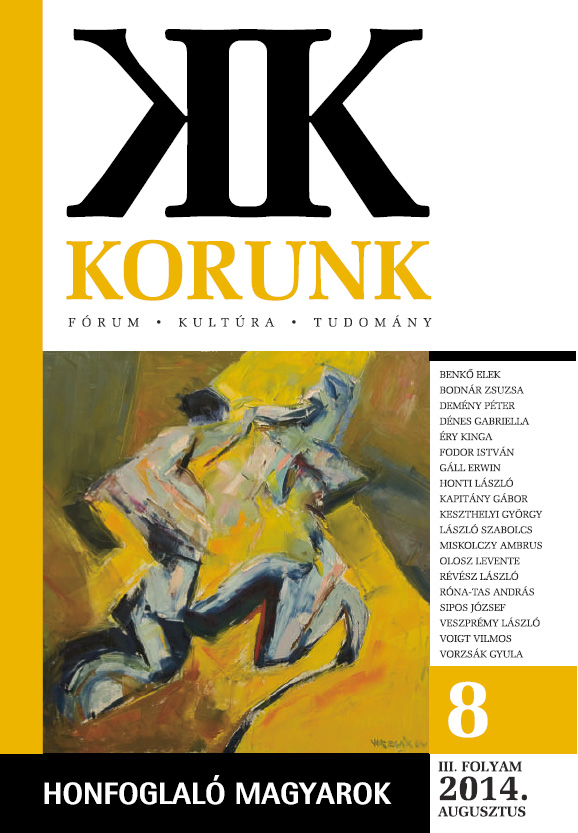Kalandozások: ősi magyar virtus vagy puszta fosztogatás?
The Hungarian Raids: Ancient Hungarian Virtue or Just Bloody Plundering?
Author(s): László VeszprémySubject(s): History, Middle Ages
Published by: Korunk Baráti Társaság
Keywords: Hungarian Conquest; raids; Hungarian virtue; plundering;
Summary/Abstract: The Hungarians entered the European area with raiding troops invited either by the East Frankish court or their Moravian op-ponents. The classical age of the raids could be set between 899 and 971, when the raiding troops rove over practically the whole continent form the Atlantic Ocean as far as the Iberian Peninsula and South Italy, hired by disputing political parties ready to pay their nomadic auxiliaries. The professional nomadic art of war (the tactical use of quickly moving disciplined mounted archers, shooting backward at the enemy while being pursued by them) remained successful for almost a century against their western or Byzantine opponents, and some battles of the hundreds of smaller clashes belong to the best docu-mented contemporary armed conflicts, like those at the Rivers Brenta (899), Riade (933) and the River Lech (955). The battle of Brenta offers a fine example of a strategic feigned retreat that ended in an unexpected crossing of the river and the annihilation of the troops of King Berengar. At the battle of Riade, the Germans tried to use the tactical feigned retreat as a stratagem, but the Hungarians recognised it, and fled successfully from the battlefield. The battle of the River Lech testifies the fatal conse-quences of rain for the nomadic composite bows, which contributed to the disastrous defeat of the Hungarians, and the out-come of this battle testifies for the successful effects of a western modernisation of warfare, stimulated by the Hungarian raids. The Italian, German and Byzantine courts paid high tribute to them for long decades. In organising the defence against the raiders, the most successful were the Germans, who after minor victories and military and political reforms, finally crushed them in 955.
Journal: Korunk
- Issue Year: 2014
- Issue No: 08
- Page Range: 46-54
- Page Count: 9
- Language: Hungarian

